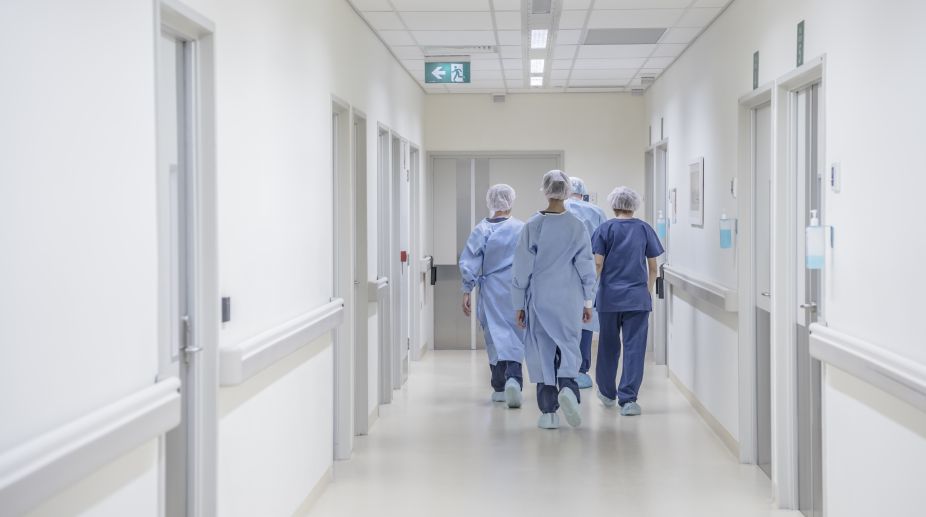Premier League: Palmer scores four as Chelsea crush Everton
Four goals from Cole Palmer, Nicolas Jackson's strike and a first goal in Blue from Alfie Gilchrist helped Chelsea record a dominant 6-0 win over Everton at Stamford Bridge.

Representational Image (PHOTO: Getty Images)
More than 20 hospitals in England have declared a black alert this week after becoming so overcrowded that they could no longer guarantee patient safety and provide their full range of normal services.
Unprecedented numbers of patients requiring care has led to at least 23 hospital trusts declaring they cannot cope since Monday, the Guardian reported on Wednesday.
Struggling hospitals have been forced to take highly unusual steps in order to manage a surge in demand for care. They include cancelling cancer operations, treating adults in children's wards and even closing a birthing centre to help cope with a sudden influx of patients who need to be admitted for treatment.
Advertisement
University hospitals of Leicester NHS trust was under so much strain on Tuesday that it declared a "system critical incident" — even higher than a black alert — and had to make patients wait in ambulances before being offloaded.
The Royal Surrey hospital in Guildford declared black escalation status on Monday because it had become "extremely challenged" by the sheer number of patients for whom it needed to find a bed.
At one point that day it had 27 patients who needed a bed but nowhere to put them, the Guardian said.
Lewisham hospital in south London became so full on Monday it had run out of beds and in an email to staff it described the situations as "critical" and "not safe".
"Emergency departments are overflowing with patients, internal major incidents are being declared around the country and staff in emergency departments are struggling to cope with the immense demand being placed on their services," said Taj Hassan, president of the Royal College of Emergency Medicine.
"These crowded environments are stretching the clinical workforce to their limits and, more importantly, at times are unsafe for patients."
Advertisement